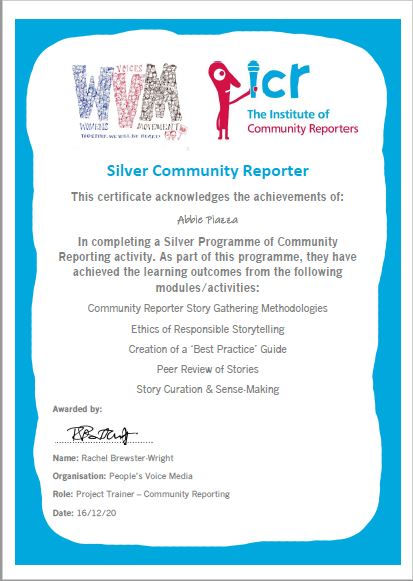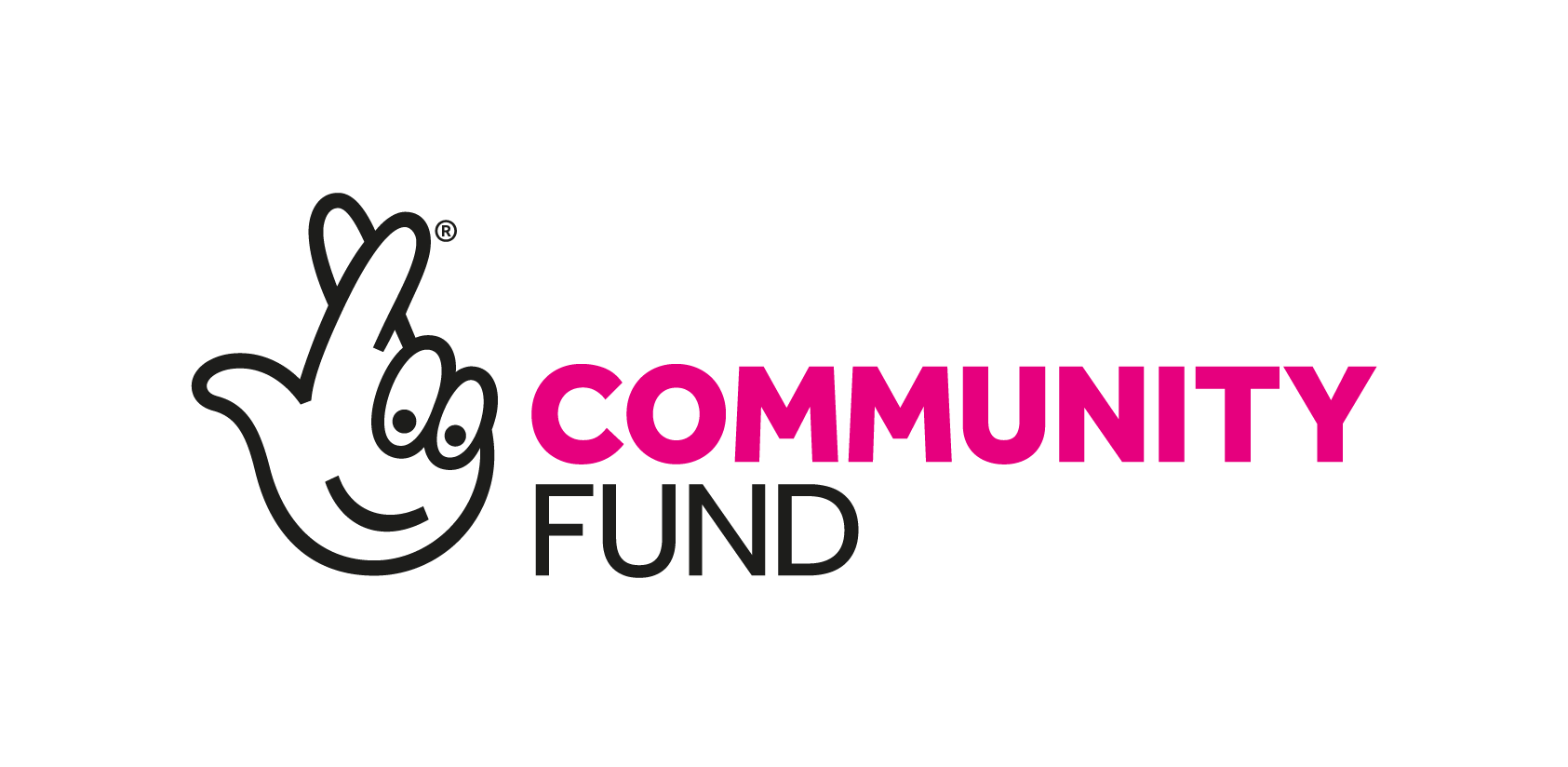
Women’s Voices Movement: Community Reporting
Over the past few months, Women’s Voices Movement group partnered with People’s Voice Media to undertake a peer research project to give voice to women’s lives during lockdown. Eight members of the group were trained in the community reporting model.
Community reporting is a storytelling movement that support people to record and share stories of lived experience using basic technology. Its key aims are to support people to find their voice, challenge perceptions and influence change with conversations and learning from the stories that are shared. The aim of this project was to learn and help support positive change in response to the experiences that women during the national lockdown. Rather than formal interviewing, this method of reporting allows for the participant to really delve into what matters to them through conversation without a preconceived notion of what to look for and report on.
Once trained, the community reporters spoke to women they knew about their experiences and what mattered to them during lockdown. Fourteen women were involved as storytellers. Key findings and themes were then drawn from these stories and compiled into one video. This video was shared as part of the Community Reporting graduation event in December. The video will also be shared at a Conversations of Change event taking place in April being organised in partnership with People’s Voice Media, bringing together decision makers, storytellers, reporters and staff to listen to the learning from these stories and have conversations of what should change.
The storytellers involved in the project included an NHS nurses experience of the pandemic, a working mums struggle to balance the lack of available childcare, a woman who recently fled a violent relationship, a volunteer at a homeless drop-in centre, and many more. Despite the women in the conversations living very different lives, similar themes emerged. The need for connection was particularly noted with frequent referral to how relationships have been affected. Feelings of isolation and the need to develop coping strategies and new routines was often mentioned. The effect of services being closed was also prominent in women’s stories.
Following the reporters gathering stories, “sense-making” sessions were held where the reporters drew the key themes and findings from each story.
Summary of findings:
- The range of positive and negatives that women have experienced through lockdown can vary widely depending on the individual woman and the situation.
- All of the women involved spoke about other people in their lives and who they were caring for, rather than just focusing on themselves and their needs
- The impact of lockdown has shone a light on good and bad services and how they have changed for each person.
- That women are adaptable, agile, flexible and resilient!
The project was initially planned to take place in April 2020, but Covid-19 meant that the training was postponed. After discussions with People’s Voice Media, the training was redesigned to be delivered online through 7 training sessions starting in October 2020. Although this did not come without its technical difficulties, overall the sessions were a success with all eight trainee community reporters gaining their qualification and graduating!
The trainers were flexible and adaptable with learning from each session leading to modifications to delivery and approach. The group coordinator Safia Griffin also provided 1-2-1 sessions with women who needed additional support.
All the learning from the first group trained has been noted and will feed back into the next group that will be trained in community reporting. For the next cohort it has been agreed that tablets will be purchased for women who do not have access to a laptop to decrease some of the difficulty associated with involvement via a mobile phone.
The four leads of the two Women’s Voices group were also trained in December by People’s Voice Media to deliver community reporting training to groups themselves. This means that future training sessions can be carried out in-house which allows for a lot more flexibility and opportunity for more sessions to be held. In order for more women to be involved, a second cohort of community reporting training is due to take place in January looking at the same peer research project of “women’s lives”. The stories will then be collated with the first cohort to put together a wider project and the full video will be unveiled at the ‘Conversations of Change’ event in March.
The project and the training is important in upskilling women and giving women a voice. Once trained in community reporting women are qualified to report on other things that matter to them in their communities and are able to use the Institute of Community Reporting website to share their stories and keep involved in this storytelling movement. But most importantly, this type of project allows women to tell their story in their own words and have these stories heard, influencing positive change.


